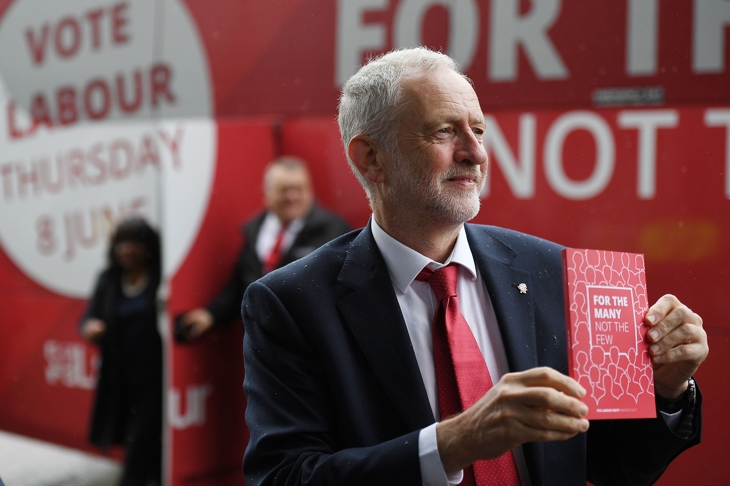One of the complaints that allies of Jeremy Corbyn often issue is that his critics – whether in his own party, the media, the Tory party or the general electorate – tend to focus on the man, not his policies. His policies are, those allies argue, actually very popular with voters — when you test them without mentioning either Labour or Jeremy Corbyn. Which seems to be proving rather difficult in this election.
There are two problems with this. The first is that voters don’t give a fig about your wonderful policies if they don’t trust your party’s leader to be competent enough to enact them. Every Labour MP I have spoken to across the country says that the number one issue on the doorstep is Jeremy Corbyn. Some even describe voters saying they have a ‘hatred’ of the Labour leader. The only way they can respond to this is to boast of the ways that they too disagree with the leader. Those who have been pilloried for months for being involved in moves against the Labour leadership are now listing these moves like key skills on a job application to sceptical voters.
The second problem is that when Labour politicians do start talking about these wonderful popular policies, things don’t necessarily go their way. Diane Abbott’s excruciating interview on police recruitment was one example, but another was John McDonnell’s Today interview on renationalisation. This was not a car crash: McDonnell is a good media performer, though the sound of shuffling papers when he was being asked about the deficit won’t go down as one of the most reassuring moves from someone applying for the job of Chancellor of the Exchequer.
But what the interview did reveal was that Labour wants to talk about a controversial, attention-grabbing policy, which is renationalising utilities such as the water companies, but push the exact mechanism by which this huge shift in public policy would be carried out to beyond the election. This proposal dwarfs the mystery £12bn of welfare cuts that floated around the Tory 2015 campaign, in which senior figures repeatedly refused to articulate how they would make these cuts because to do so would be to admit that working people would be hit in a rather unpleasant way.
Pressed on how Labour would nationalise the water companies and whether the party really had costed this policy, McDonnell repeatedly said that it would ‘consult’ on the ‘mechanism’ for this. Would this mean nationalisation without compensation? We won’t find out until after the election.
This poses a political problem for Labour. The shareholders in water companies tend to be pension funds – and unless the party is considering paying market value for these companies then this very quickly becomes a story about pensions funds being hit – which only helps the Tories as the party can then spend the next few days claiming that Labour is going to make life more difficult for the group of people most likely to vote.
The truth is, though, that this election isn’t really about policy for either party. The Tories don’t need to worry that they are re-announcing policies on housing from a few years ago, for instance, or promising more mental health workers without any more money to fund them, not because this won’t be pointed out (it has been), but because the key theme of the election is about whether voters want Theresa May or Jeremy Corbyn in Downing Street.
This isn’t a policy election. The fight between the Tories and Labour in 2015 involved far more discussion about policies: the difference between the parties’ spending plans, their welfare cuts and their tax pledges. This election is mainly about the two people leading the two main parties – and judging by the level of preparation that its frontbench puts into interviews about its policies, Labour knows that too.








Comments